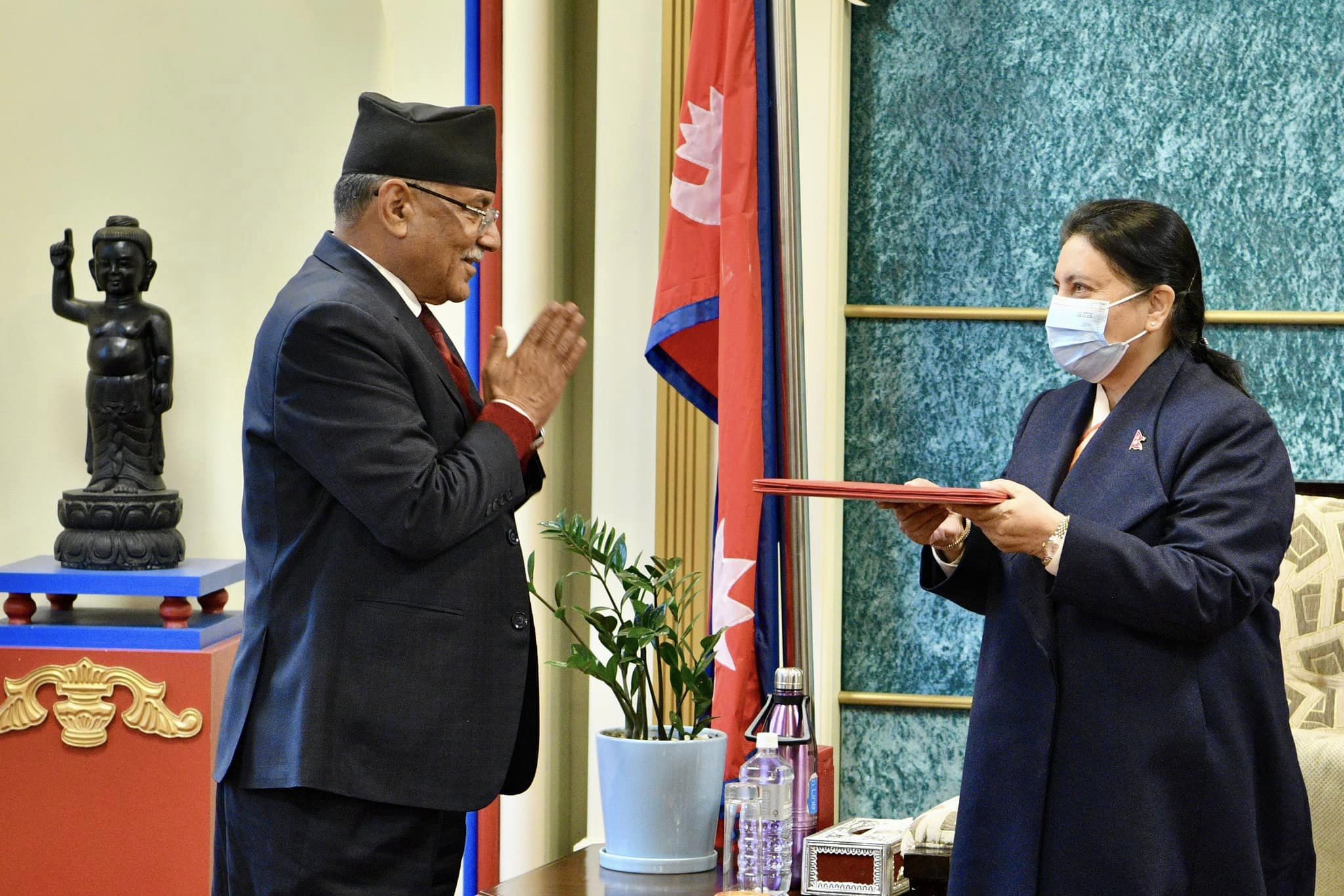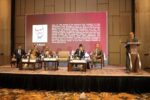KATHMANDU: Until Sunday afternoon, it was the “Nepali Congress-led coalition versus CPN-UML” that continuously posed a political alarm.
However, the rather quick, in fact, too quick political development appeared to be a ton of bricks to many, particularly the Nepali Congress (NC), and some self-proclaimed political analysts.
To be precise, they were flabbergasted when a “disappointed” Maoist Center Chairman Pushpa Kamal Dahal Prachanda “stood up, walked out of the Baluwatar meeting hall, and headed towards Balkot” where he succeeded in shaking hands with his former comrade.
Does this mean that CPN-UML Chairman KP Oli, considered a shrewd politician, succeeded in breaking the bonding of the five-party coalition? Perhaps yes, since he was continuously making a blistering attack on what he termed an “unholy coalition”!
In the afternoon of Sunday, it turned out to be smooth sailing for Maoist Chairman Pushpa Kamal Dahal Prachanda as he succeeded in garnering the support of seven political parties, including three independent parliamentarians to become the Prime Minister.
Even though 138 parliamentarians are enough to form a majority government in the 275-member House of Representatives, Prachanda has garnered the support of 169 MPs from political parties, including CPN-UML, Maoist Centre, Rastriya Swatantra Party Nepal, Rastriya Prajatantra Party, Janamat Party, Nagarik Unmukti Party and Janata Samajwadi Party, and three independent Members of Parliament.
“This is all because of NC’s arrogance,” argues parliamentarian Prabhu Sah. “Had NC President Sher Bahadur Deuba not demonstrated his arrogance and pride, the situation would have been different.”
Even Unified Socialist Chair Madhav Kumar Nepal concurs with Sah’s statement. “Sher Bahadur Deuba’s arrogance and rigidity played a key role in splitting the coalition,” Nepal said.
This was why the political drama unfolded too soon on Sunday giving an unexpected yet white-knuckle end to the month-long high-voltage political drama after the November 20 elections yielded a hung Parliament.
If the political pundits’ views were to be considered, the country was witnessing polarization due to the deepening political divisions with the NC-led five-party coalition and CPN-UML pinpointing one another for the crisis, and democratic erosion.
Now, with Sunday’s high-voltage drama, NC President Sher Bahadur Deuba and NC have become weak since it has not only lost the power at the center but cannot even form governments in all seven provinces.
“Even though we (NC) had verbally agreed to lead the government in turn, it lost power because the leadership remained adamant to its stance not budging an inch to leave the first term in government to Prachanda,” a Nepali Congress, who insisted anonymity, told Khabarhub.
It was not unnatural for NC, being the largest party, to claim the premiership and the President. But it would have been better had it not claimed for both the positions — Prime Minister and President.
Despite being the largest party in the House of Representatives (HoR) with 89 seats, Nepali Congress is now compelled to play the role of an opposition.
NC would have led the new government had it maintained flexibility by not demanding both posts of Prime Minister and President.
Even NC senior leader Ram Chandra Poudel, who was always on the move to preserve the coalition, is disappointed with the development.
Poudel blames Deuba for not being honest about his commitment. He prefers to say that Deuba “betrayed” Prachanda.
Political analyst Arun Subedi, meanwhile, believes that NC should have simultaneously initiated an alternative move towards forming an alliance sans the Maoist Center.
In fact, the leadership even did not convene a meeting of the NC’s central working committee to discuss whether the party should continue the coalition or form an alternative alliance.
Disgruntled voices have been raised by insiders who allege NC President Deuba for not listening to party leaders other than a handful of “yes-men” of his coterie.
Whether or not the NC leaders blame Deuba for this loss, President Bidya Devi Bhandari appointed Prachanda as the Prime Minister as per Article 76(2) of the Constitution of Nepal.
This is the third time Chairman Dahal has become the Prime Minister.
Article 76 (2) of the Constitution of Nepal states “in cases where no party has a clear majority in the House of Representatives, the President shall appoint as the Prime Minister a member of the House of Representatives who can command majority with the support of two or more parties representing to the House of Representatives.”









Comment